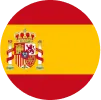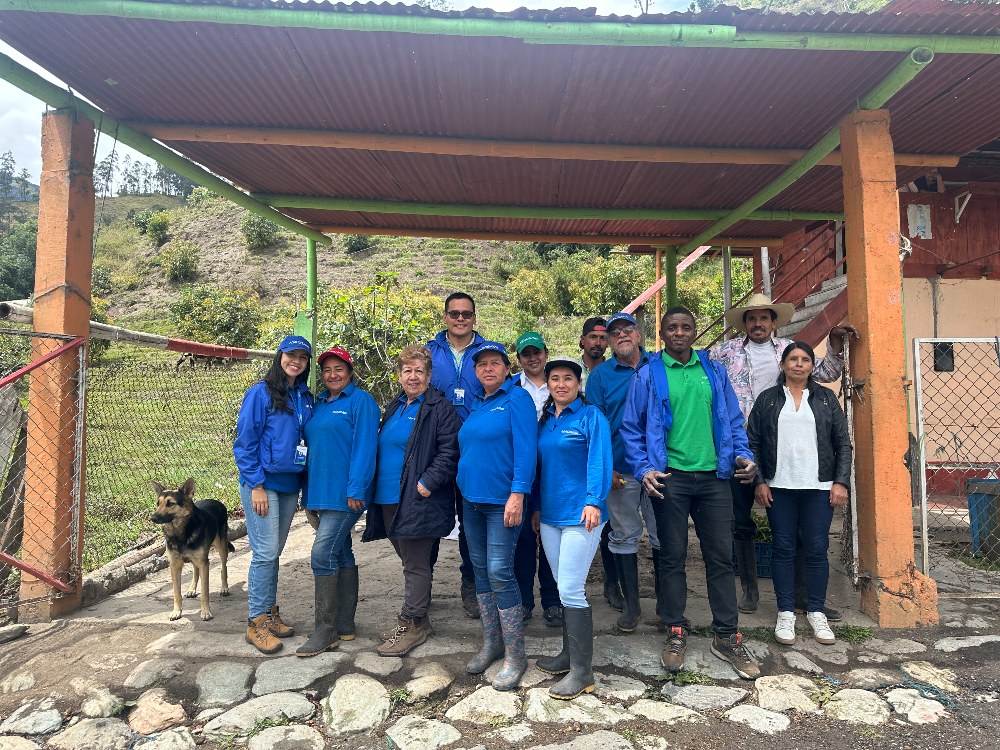Espinal, Tolima. October 8, 2024. Eleven months after establishing the Agrosavia La 22 arracacha crop on a farm belonging to a producer who is also an ally of the Social Appropriation of Knowledge project in Cajamarca, Tolima, specimens were harvested from two plots: one managed organically and the other conventionally. The objective was to analyze the differences in management, especially in the supply aspect, and the impact on production and product quality between both types of management.
During the exchange of knowledge in the project, under the Farmer Field School (FFS) methodology, the harvest of an arracacha plantation of the Agrosavia La 22 variety was carried out with producers from the municipality. This crop included two plots: one managed conventionally and the other with more sustainable or environmentally friendly practices. These plots were developed in collaboration with a local producer with extensive experience in this type of management, together with the project's technical team and the participating farmers of the FFS.
The main objective of this FFS was to compare the differences between both management methods. The attendees have participated in the entire production process, from sowing and pest and disease management to crop conservation and weed control. This will allow farmers to determine which option best suits their specific needs and has less environmental impact without sacrificing the economic part of production.
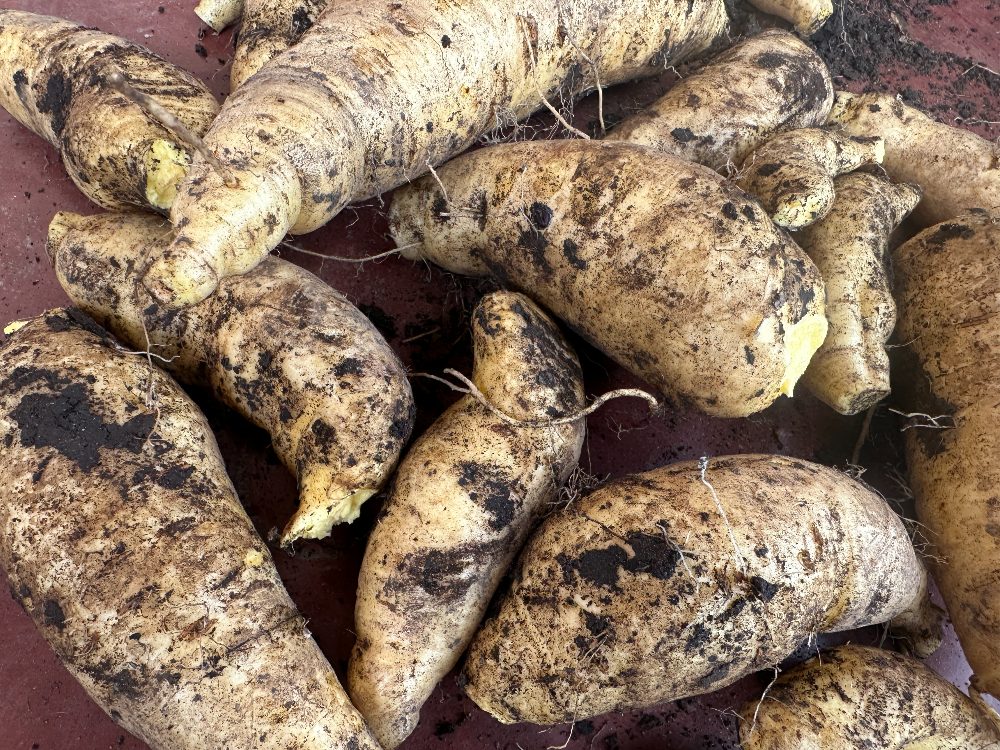
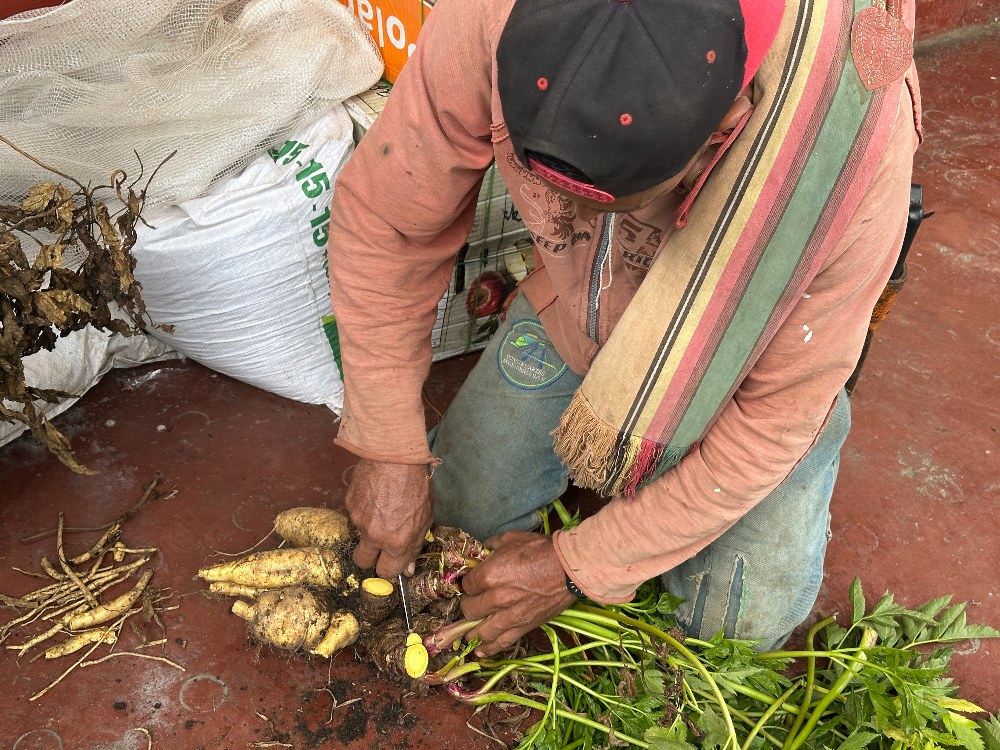
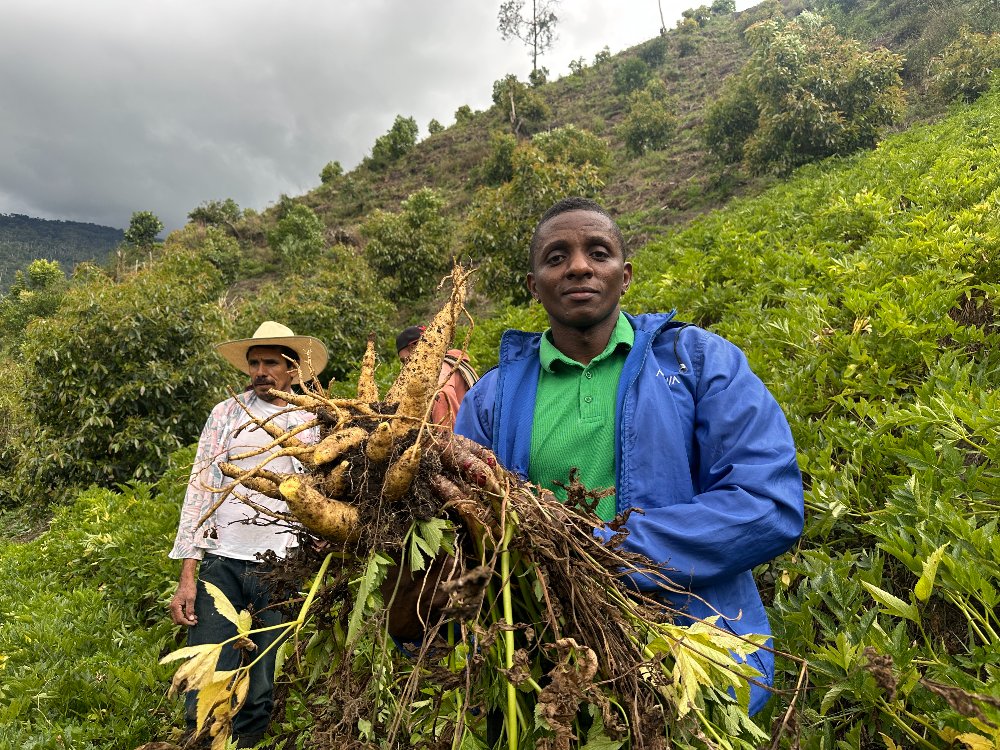
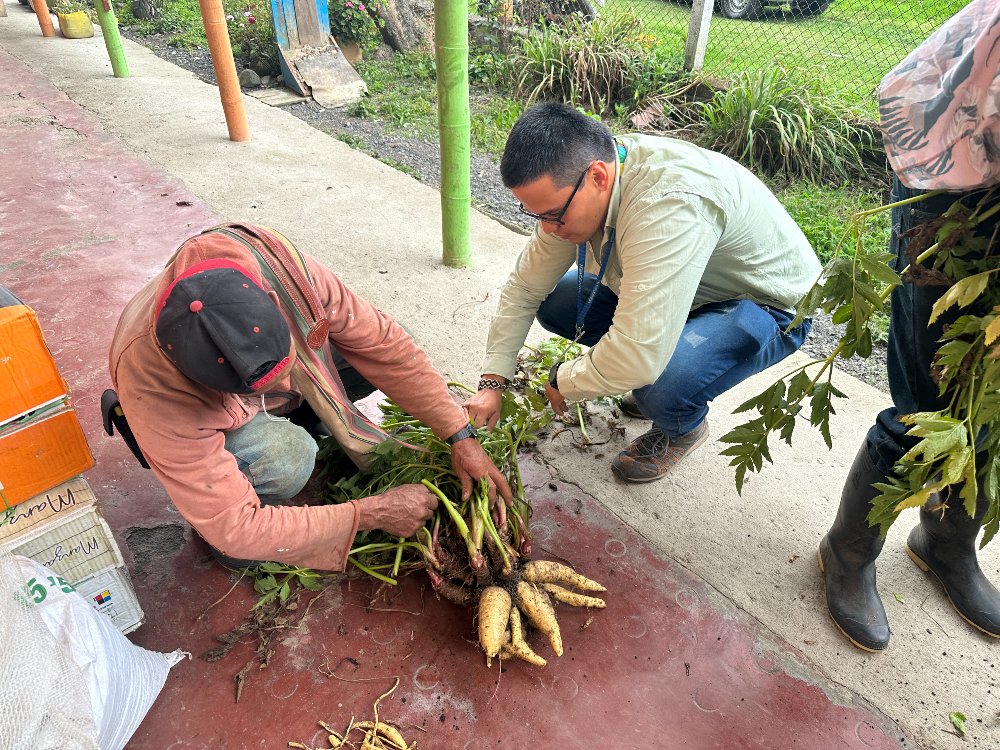
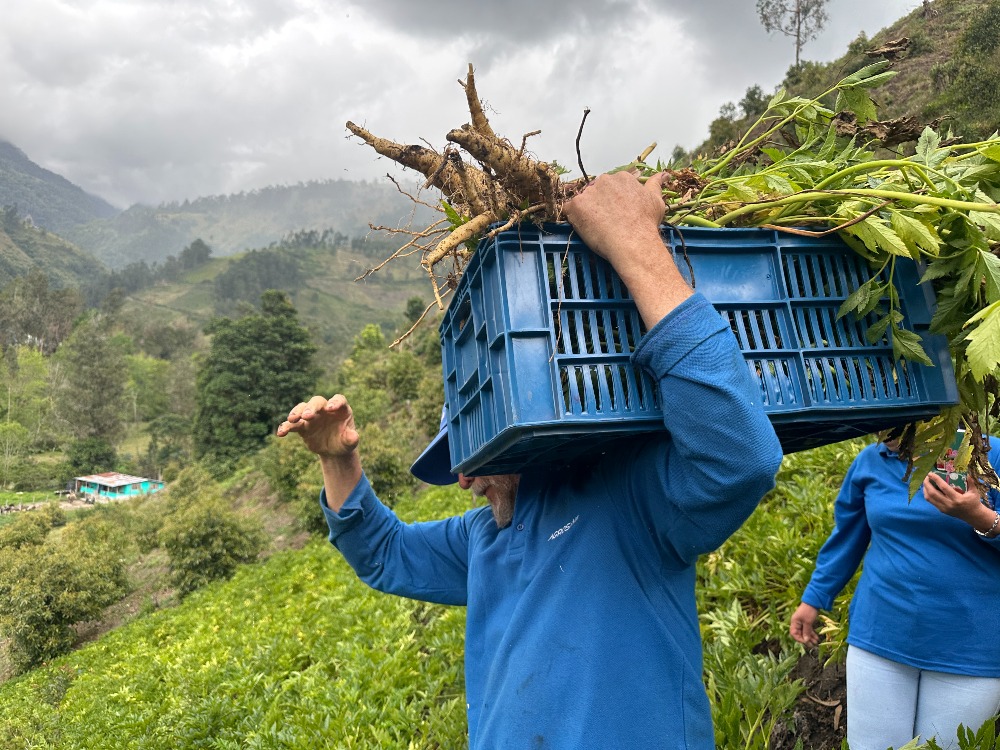
Liliana Santamaria, an arracacha producer from Cajamarca, mentioned, "The work carried out is very important because we can look at the yield that both plots (organic and conventional) give us to implement it in our crops. This work is very nice; we had never done it, and now that we know how to do it, we will put it into practice on our farms when we have the same planting level, both chemical and organic. It is good to have that balance between our knowledge and the lessons learned from AGROSAVIA to be able to improve our arracacha plantations."
In this sense, the farmers carried out the harvest, cleaned all the dry and green leaves, and removed the tuberous roots and the corm crown. Then, they selected the arracachas destined for the market and those unsuitable. All these arracacha parts were weighed to determine the yield and benefits offered by the organically and conventionally cultivated arracacha crops.
Diego Alberto Navarro Niño, Technology Transfer Professional at the Nataima Research Center and part of the project team, stated: "For the Nataima Research Center of AGROSAVIA, the implementation of the Farmer Field Schools in the department of Tolima represents an innovative strategy. Through a participatory and experiential approach, an exchange of knowledge between professionals and farmers is facilitated organically and simply. This method has generated greater confidence in farmers, fostering a continuous dialogue on the new practices applied to their crops. In addition, they have expressed their interest in implementing this methodology in arracacha cropping and other crops at the departmental level."
- More information here:
- Rodrigo Tofiño Rivera
- Communications, Identity and Corporate Relations Professional
- Research Center Nataima
- Communications, Identity and Corporate Relations Advisory Office
- rrofino@agrosavia.co
- AGROSAVIA

